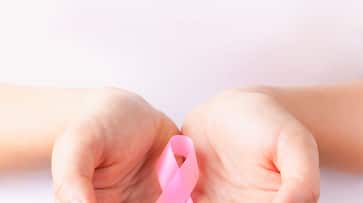However, according to doctors, the survival rate of breast cancer patients has increased over the years
Bengaluru: 8% to 10% of breast cancer cases are found among nulliparous women -- who haven't given birth to a child by choice or due to medical reasons -- and those who opt out of breastfeeding their baby. The number was not more than 3% to 5% 10 years ago. Oncologists say that these women are more prone to the disease than other women.
Many women are not keen on getting married or giving birth to children and this is worrying trend, according to professor Dr Gopinath KS, director of Healthcare Global Enterprises. He reportedly said that this has a direct impact on hormonal imbalance in a woman, increasing the risk of cancer.
Gopinath also pointed out that even among married and child-bearing women, the cancer risk has increased due to change in lifestyle. Smoking, Alcohol consumption, food habits and lack of breastfeeding leads to hormonal imbalance, he stated
According to doctors, there is a rise in the number of couples who have decided not to have children, women delaying childbirth or marriage and a rise in infertility rate.
Nulliparity was an established risk factor for breast cancer and the concern now is the rising number of such women who become victims of breast cancer, Dr Ravi Arjunan, professor in surgical oncology, Kidwai Memorial Institute of Oncology reportedly said. He also said that breastfeeding reduces cancer risk and hence these women are more vulnerable.
A consultant obstetrician and gynaecologist said that breast milk is produced by prolactin hormone and during the breastfeeding phase, women have less exposure to estrogen and progesterone hormones. To that extent, a woman who has breastfed a baby is at a lesser risk, reports said.
However, according to doctors, the survival rate of breast cancer patients has increased over the years. Dr Sandeep Nayak, director, surgical oncology at Fortis Hospital said the survival rate of someone surviving stage-3 breast cancer was 55% 10 years ago, whereas now it is over 80%. If a patient comes for treatment in the first or second stage for breast cancer, the survival rate is now 95%. It was 83% earlier.
Last Updated Jul 14, 2019, 5:13 PM IST









![Salman Khan sets stage on fire for Anant Ambani, Radhika Merchant pre-wedding festivities [WATCH] ATG](https://static-gi.asianetnews.com/images/01hr1hh8y86gvb4kbqgnyhc0w0/whatsapp-image-2024-03-03-at-12-24-37-pm_100x60xt.jpg)
![Pregnant Deepika Padukone dances with Ranveer Singh at Anant Ambani, Radhika Merchant pre-wedding bash [WATCH] ATG](https://static-gi.asianetnews.com/images/01hr1ffyd3nzqzgm6ba0k87vr8/whatsapp-image-2024-03-03-at-11-45-35-am_100x60xt.jpg)


